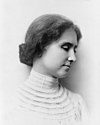The Cambridge School of Weston
| The Cambridge School of Weston | |
|---|---|
| Location | |
 | |
| , United States | |
| Information | |
| Type | Private |
| Motto | "Truthe and Gentil Deedes" |
| Religious affiliation(s) | None |
| Established | 1886 |
| Head teacher | Jane Moulding |
| Enrollment | 330 students |
| Student to teacher ratio | 6:1 |
| Campus | Suburban, 65 acres |
| Color(s) | Blue and yellow |
| Mascot | Gryphon |
| Website | www.csw.org |
The Cambridge School of Weston (also known as CSW) is a private, coeducational high school in Weston, Massachusetts. Currently the school has approximately 330 students, 25% of whom are boarding. The Head of School is Jane Moulding. The school's motto is "Truthe and Gentil Deedes" (from Chaucer, "Truthe and Gentil Dedes".) Its mascot is the Gryphon. The Cambridge School of Weston's mission is to provide a progressive education that emphasizes deep learning, meaningful relationships and a dynamic program that inspires students to discover who they are and what their contribution is to their school, their community and the world. [1]
History
The school was founded in 1886 as The Cambridge School for Girls at 20 Mason Street in Cambridge, Massachusetts by Arthur and Stella Gilman, who had previously helped found Radcliffe College, as a preparatory school for Radcliffe. In 1918, The Cambridge School for Girls merged with the Boston-based Haskell School, and was renamed The Cambridge-Haskell School. Lebanese-born poet Kahlil Gibran, an intimate friend of headmistress Mary Haskell, designed a ring for her students depicting a flower growing in an open hand.[2]
In 1931, the school was moved 20 miles (32 km) to its present campus in Weston under the direction of then-head of school John French, became coeducational, and was renamed a final time as The Cambridge School of Weston (CSW). A follower of educational reformer John Dewey, French put in place many of the progressive educational underpinnings that still guide the school today, such as a focus on the whole student, experiential learning, community involvement, and a low student-to-faculty ratio. In 1939, the school implemented a form of community self-governance modeled after the traditional New England town meeting. Following Robert's Rules of Order, the entire school community, including students, meet to propose and debate school rules and policies, elect representatives to school committees, and decide on other relevant topics to the community. The Cambridge School Town Meeting continues to be a central part of the school's community governance to the present day.
Academics
The school has gained recognition as a pioneer of the Module System, implemented in 1973 by then Head of School Bob Sandoe.
A form of block scheduling, the goal of the Module, or "Mod" System is to provide a framework to allow students to focus on fewer subjects more intensively during a given term. The academic year is divided into seven terms (known as Modules) of five weeks apiece. A school day consists of four class blocks of either 75 or 90 minutes each, with some classes spanning several consecutive blocks. Students take up to three academic and one extracurricular class per mod. Some classes, such as those in mathematics or a foreign language, continue for multiple mods. No two students have the same Mod Schedule; every student's schedule is unique to themselves. Students submit what classes they would like to enroll in, and the faculty works on their schedule to fit their electives into schedule, along with the required classes each class must participate in.
Tuition
The Cambridge School of Weston's tuition for the 2013-2014 school year is $40,300 for day students and $52,300 for boarding students.[3] About 25% of students receive financial aid.[4]
Initiatives
The Cambridge School of Weston finished building a "Green" building called the Garthwaite Center for Science and Art, with a dedication ceremony and day of environmental education events on October 20, 2007. The building represents a large portion of the Changing Lives Capital Campaign completed at the end of 2009. Four key initiatives currently form the central architecture of the school's strategic plan: Health and Wellness, Global Engagement, Social Justice and Teaching and Learning.
Athletics
The Cambridge School of Weston offers the following interscholastic sports:[5]
- Soccer
- Cross Country
- Field Hockey
- Basketball
- Baseball
- Ultimate
- Tennis
- Girl's Lacrosse
Additional fitness courses offered are: Yoga, Rock Climbing, Fencing, Cycling, Weight Training, Golf, Table Tennis, Dance, and Martial Arts.[6]
Notable alumni
- Miguel Arteta
- Jonathan Bertman
- Louisa Bertman
- Lyudmila Bouzinova
- Josh Clayton-Felt
- Jennifer Coolidge
- Aprille Ericsson-Jackson
- Ian Falconer
- Ellen Feiss
- Zach Feuer
- Paul Michael Glaser
- Erin Hamilton
- Andras Jones
- Helen Keller
- Susanna Kaysen
- Stephin Merritt
- Hamilton Morris
- David Mugar
- Douglas Preston
- Margaret Salinger
- Andrew Strominger
- Joe Sumner
- Nick Zinner
- Steve Mumford
- Eric von Hippel
References
- ^ The Cambridge School of Weston- About Us- Our Mission and Values
- ^ The Cambridge School of Weston- About CSW- History- 1886-1918
- ^ The Cambridge School of Weston- Admissions- Affording CSW- Tuition and Other Costs
- ^ The Cambridge School of Weston- Admissions- Affording CSW- Financial Aid Q & A
- ^ http://www.csw.org/podium/default.aspx?t=119203
- ^ http://www.csw.org/podium/default.aspx?t=119176
External links
- The Cambridge School of Weston website
- The Cambridge School of Weston ALUMNI website
- Picture of award winning Mugar Center for Performing Arts
- de Lone, Richard H. and Susan T., John Dewey is Alive and Well in New England, Saturday Review, November 21, 1970, pages 69–71. Included in: The New World of Educational Thought, Frank A. Stone, editor (Ardent Media, 1973. ISBN 0-8422-0282-X, ISBN 978-0-8422-0282-4), pages 182-189.

